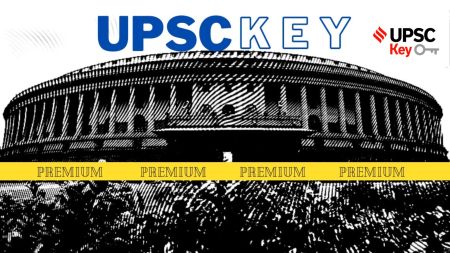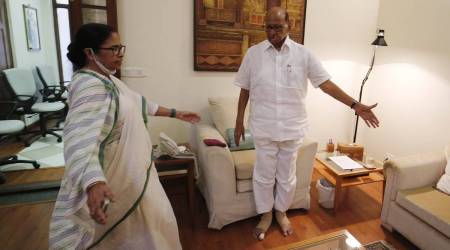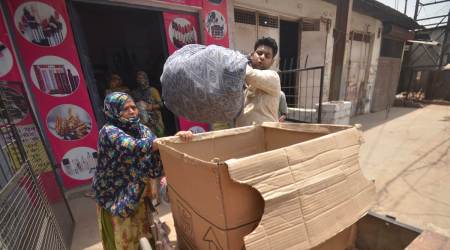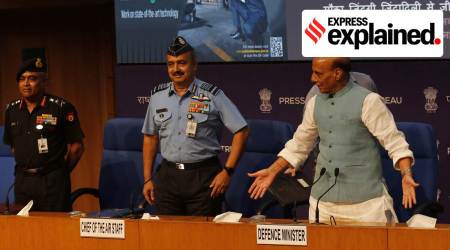Spanish Foreign Minister José Manuel Albares: ‘NATO must reach out to all countries like India which might be good partners’

AHEAD OF the NATO summit in Madrid on June 28, visiting Spanish Foreign Minister José Manuel Albares on Wednesday said that NATO (North Atlantic Treaty Organisation), which traditionally only looked towards the eastern flank, must also look to the southern flank, and reach out to all those countries that like India, might be good partners, and interested in keeping stability in the world.
In an exclusive interview to The Indian Express, Albares – who met External Affairs Minister S Jaishankar – when asked about possible discussions between India and the NATO, said, “It is not for me to decide, it is up to the UN Secretary General to decide that. But of course, a dialogue, certainly between NATO and India, is most welcome.”
He said the NATO summit is, above all, meant for NATO members. “But of course, there is always space for partners and allies,” he said.
? Limited Time Offer | Express Premium with ad-lite for just Rs 2/ day ?? Click here to subscribe ?
The Ministry of External Affairs said that Jaishankar and Albares welcomed signing of the defence contract as part of which Airbus Spain will supply 56 C295 aircraft, 40 of which would be Made in India, and agreed to further deepen defence and security cooperation.
Edited excerpts of the interview:
What were the main topics of conversation with minister Jaishankar?
There are three main topics. One, is we agreed that we have to reinforce the bilateral relationship. India is a reliable partner and a very important country, a key actor in the region. And we have agreed that more exchanges must happen between both of us. And we have to exchange more about our view of global affairs, regional affairs and also exchange ideas on how to solve world problems.
The second one is economy and investment. There are more than 200 Spanish companies here and Spanish companies have a know-how that can help India in infrastructure, railway, water and sanitation or renewable energy. And because of the European funds — The Next Generation EU funds — are coming to Spain — 140 billion Euros in the next year, there are a lot of opportunities for Indian companies to invest in two main sectors, digital and green economy. There are already Indian companies doing investments in Spain but we can do it more.
And the third is global issues. Without India, very important challenges like climate change, the food security crisis that we are facing cannot be solved. Since both of us are attached to multilateralism and have respect for international law, we have decided to join forces.
On Russia’s invasion of Ukraine:
Spain, as all European countries, has condemned the Russian aggression. The main objective of Spain and all the European partners is that peace should be restored as soon as possible in Ukraine, and the territorial integrity and sovereignty of Ukraine is respected. That is our main and only objective.
On India’s position:
I’m not going to tell any country since every country is sovereign. But I think we must all join forces today, to make sure that the war stops, that peace goes back to Ukraine, and that the territorial integrity and sovereignty of Ukraine are respected. And I’m sure that all countries in the world must agree at least on that basis.
What is important is that India, it is a big country that plays a stabilising role in this region. And we must count on India to face the challenges. Today it is world peace, but also the spillover of the Ukrainian crisis — food security. So what Spain wants, is to engage with India, both bilaterally but also to reflect and to join forces on global issues. There are things that will be much more difficult to do if we don’t count on India.
On food security:
We have exchanged views about the gravity of the situation, about the Indian measures, how India engages with its neighboring countries, to prevent them from having an impact from this crisis. I have given the Spanish point of view, and we have all agreed that we must do as much as we can to prevent this crisis from becoming a very, very serious global crisis, that will affect parts of the world that are very far from Russia and Ukraine — as they can be in Latin America, or the Far East, in Asia.
On India’s ban on wheat exports:
Yes, I have been told that it has not been a total ban. The [Indian] government has put in a lot of effort on reassuring the neighbouring countries, giving them assurance that they will get what they need. Spain thinks that what we must do is join forces and measures that are too protectionist, can trigger a faster and deeper food crisis… the worst thing we can do concerning this food crisis is that each one of us try to solve their small national problem, because that will make global management very complicated.
On China’s actions in the region and lessons it draws from the Russian invasion of Ukraine:
China is a very important country, a permanent member of the Security Council. And we expect China to play the role of world power and permanent member of the Security Council, to preserve its stability, and world peace. And this is a role that is even more crucial in the region, in China’s own region.
On China’s aggressive moves with India, as a two-year border standoff is ongoing:
What we expect from all of our friends that are neighbours is that they have the best relations. And we also think that war, as the United Nation charter says, must be avoided to solve any political conflict of dispute.
On Europe’s energy needs from Russia:
Europe started a fair energy transition several years ago to move towards neutral carbon sources. Not all the countries have the same energy mix in the European Union. So there is a fine balance. We have targets for carbon-neutral energy by 2030 and 2050, and we are going to keep them. Spain has been at the forefront of that effort. At the same time, we must be very careful in this very complex time in Europe and in the world, not to destabilize countries because of the energy flows.
On the NATO summit in Madrid:
The NATO summit is, above all, meant for NATO members. But of course, there is always space for partners and allies. This will be a very crucial summit. Because there is this document called the Strategic Concept… there are pressing challenges and threats on the eastern flank, and also from the southern flank. And at the same time, because there are two countries, Finland and Sweden, that they’re asking for accession, all of that will make the Madrid summit in about two weeks, a very special one.
But more and more, we talk within NATO— of the 360 degrees NATO. That means that NATO that traditionally only looked towards the eastern flank, must also look to the southern flank, and reach out to all those countries that like India, might be good partners, and interested in keeping stability in the world. But we must not forget that NATO is a defensive alliance, not an offensive one.
On India’s possible participation in discussions with NATO:
It is not for me to decide, it is up to the UN Secretary General to decide that. But of course, a dialogue, certainly between NATO and India, is most welcome.
Warm and productive discussions with Foreign Minister @jmalbares of Spain.
Discussed our growing engagements in political,defense, economic and cultural domains. Envisage enhanced collaboration to support self reliance and resilient supply chains. pic.twitter.com/P2XuU3xPby
— Dr. S. Jaishankar (@DrSJaishankar) June 15, 2022
On the perception that NATO’s eastward expansion led to Russian actions against Ukraine:
I rule that out completely. Ukraine’s accession to NATO was not on the table. Ukraine is not a threat to Russian security. NATO is a defensive alliance. So, no one can feel threatened by its expansion. And above all, each country must be sovereign, to decide to which alliances, organization or a scheme of security you belong. So no, I don’t think that is a possibility.
Key takeaways from the bilateral discussions:
There is an economic partnership that we are building in different sectors, including airports, railways, water and sanitation, renewable energy. There must be concrete and structured political dialogue, in order to be able to exchange points of view on global issues and to foster common global initiative.
Trade has been increasing a lot in the last few years, but I think that we can focus on some big projects for instance, high speed trains and at the same time investments, Indian investment in Spain is most welcome. There are already a few companies doing it, but they must be more and more involved. And another thing is a larger exchange of people — can be through mobility of qualified and talented people, or also through tourism. And in order to do that, we have to go back to the connectivity, direct connectivity between Delhi and Madrid, as it was before the pandemic.
The Prime Ministers, who have already met, should meet again. And there should be political consultations at the level of the Minister of Foreign Affairs at least once a year, and then sectoral ministers, ministers of transport and ministers of infrastructure should meet.





